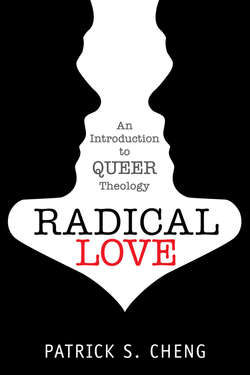Читать книгу Radical Love - Patrick S. Cheng - Страница 16
На сайте Литреса книга снята с продажи.
Four Sources of Queer Theology
ОглавлениеWhere did queer theology come from? Did it just fall out of the sky? Was it an invention of LGBT activists? For many people, the notion of queer theology is an oxymoron, particularly in light of how traditional Christianity has condemned— and continues to condemn—same-sex acts and gender-variant identities as intrinsically sinful. However, in recent years an increasing number of theologians have written about queer theology, drawing upon a variety of different theological sources.19
Like all other theologies, queer theology draws upon at least four sources: (1) scripture, (2) tradition, (3) reason, and (4) experience. This multiplicity of sources is important because, on the one hand, theology has never been simply about reading the Bible literally (that is, scripture) nor simply about what the church authorities have taught (that is, tradition). On the other hand, theology has never been simply a matter of drawing upon philosophy (that is, reason) nor has it simply been equated with the human experience of the divine (that is, experience).
Rather, theology is a synthesis of all four sources, and each of these sources acts as a “check and balance” for the other three. Of course, different traditions give different weight for each of these sources. For example, evangelical Protestants rely heavily upon scripture, Roman Catholics rely heavily upon tradition, Anglicans rely heavily upon reason, and progressive Protestants rely heavily upon experience. But it is important to realize that each of these sources must still be read in light of the other three. Let us now turn to each of these four sources in the context of queer theology.
